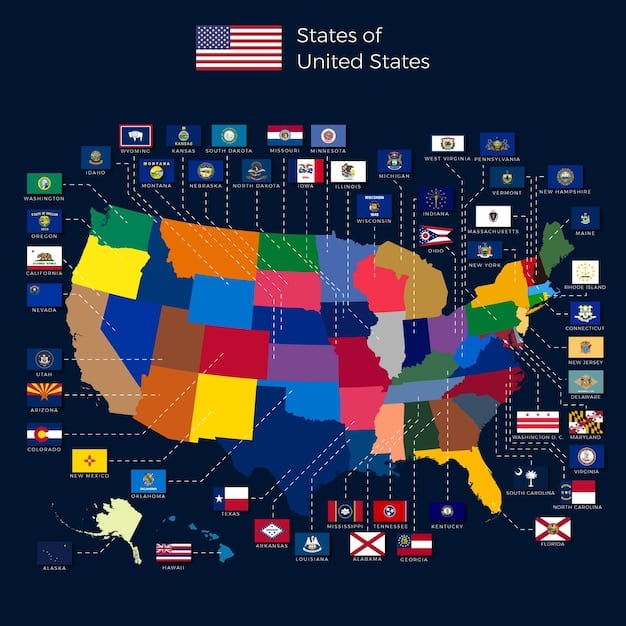Unlock Free Government Resources: Eligibility Guide for Low-Income Individuals

Unlock Free Government Resources: A Comprehensive Guide to Eligibility for Low-Income Individuals offers a comprehensive overview of various government programs and resources available to low-income individuals in the US, detailing eligibility requirements and application processes to help those in need access vital support.
Navigating the landscape of government assistance can be overwhelming, especially for low-income individuals. This guide aims to unlock free government resources by providing a clear and comprehensive overview of eligibility requirements and application processes for various programs available in the United States.
Understanding Eligibility for Government Assistance Programs
Government assistance programs are designed to provide a safety net for individuals and families facing financial hardship. However, understanding who qualifies for these programs and how to apply can be challenging. This section will explore the key factors that determine eligibility for various government resources.
Key Factors Determining Eligibility
Several factors are considered when determining eligibility for government assistance programs. These factors typically include income, household size, age, disability status, and citizenship or immigration status.
- Income Limits: Most programs have income limits that applicants must meet to qualify. These limits are often based on the Federal Poverty Guidelines and vary depending on household size.
- Household Size: The number of people living in a household can affect eligibility. Larger households may qualify for higher benefit amounts.
- Age and Disability: Some programs are specifically designed for elderly or disabled individuals.
- Citizenship or Immigration Status: Most federal programs require applicants to be US citizens or qualified immigrants.
It’s important to note that eligibility requirements can vary significantly from program to program. Always check the specific requirements for each program you are interested in applying for.

Federal Government Resources for Low-Income Individuals
The federal government offers a wide range of programs and resources to support low-income individuals and families. These programs cover essential needs such as food, housing, healthcare, and education.
Supplemental Nutrition Assistance Program (SNAP)
SNAP, formerly known as food stamps, provides monthly benefits to eligible low-income individuals and families to help them purchase groceries. Eligibility is based on income, household size, and resources.
Housing Assistance Programs
The Department of Housing and Urban Development (HUD) offers various housing assistance programs, including public housing, Section 8 vouchers (Housing Choice Vouchers), and other rental assistance programs. These programs help low-income individuals and families afford safe and decent housing.
Medicaid and Children’s Health Insurance Program (CHIP)
Medicaid provides healthcare coverage to low-income individuals and families. CHIP provides similar coverage to children in families who do not qualify for Medicaid. Eligibility requirements vary by state.
These are just a few examples of the many federal government resources available to low-income individuals. Each program has its own specific eligibility requirements and application process.
State-Level Assistance Programs
In addition to federal programs, many states offer their own assistance programs to support low-income residents. These programs may supplement federal benefits or provide assistance in areas not covered by federal programs.

Temporary Assistance for Needy Families (TANF)
TANF is a federal block grant that provides states with funding to design and implement their own welfare programs. These programs may provide cash assistance, job training, and other services to low-income families with children.
State-Funded Rental Assistance Programs
Some states offer their own rental assistance programs in addition to federal programs. These programs may have different eligibility requirements or provide different levels of assistance.
State-Specific Healthcare Programs
Many states offer healthcare programs that supplement Medicaid or provide coverage to individuals who do not qualify for Medicaid. These programs may cover specific health needs or populations.
It’s crucial to research the specific assistance programs available in your state to understand the full range of resources available to you.
Eligibility Requirements and Application Processes
Understanding the specific eligibility requirements and application processes for each program is essential for successfully accessing government assistance. This section will provide guidance on navigating these processes.
Gathering Required Documentation
Before applying for any government assistance program, it’s important to gather all the necessary documentation. This may include:
- Proof of Income: Pay stubs, tax returns, or other documentation to verify your income.
- Proof of Identity: Driver’s license, passport, or other government-issued identification.
- Proof of Residency: Utility bills, lease agreements, or other documents to verify your address.
- Proof of Citizenship or Immigration Status: Birth certificate, passport, or immigration documents.
Navigating the Application Process
The application process for government assistance programs can vary depending on the program and the state. Many programs offer online applications, while others require you to apply in person or by mail. Be sure to carefully read the instructions and provide all required information.
Common Mistakes to Avoid
Several common mistakes can delay or even disqualify your application. These include:
- Incomplete Applications: Make sure to fill out all sections of the application completely and accurately.
- Missing Documentation: Provide all required documentation along with your application.
- Providing False Information: Providing false or misleading information can result in disqualification and even legal penalties.
By following these tips, you can increase your chances of successfully accessing the government assistance programs you need.
Tips for Maximizing Your Eligibility and Benefits
Even if you meet the basic eligibility requirements for a government assistance program, there are steps you can take to maximize your eligibility and the benefits you receive. This section will provide some helpful tips.
Understanding Income Limits and Deductions
Many programs have income limits that are based on your gross income. However, some programs allow you to deduct certain expenses from your gross income to determine your eligibility. Common deductions include:
- Childcare Expenses: You may be able to deduct childcare expenses if they are necessary for you to work or attend school.
- Medical Expenses: Some programs allow you to deduct medical expenses that exceed a certain threshold.
- Housing Costs: In some cases, you may be able to deduct a portion of your rent or mortgage payments.
Exploring Additional Resources and Support
In addition to government assistance programs, numerous non-profit organizations and community groups offer resources and support to low-income individuals and families. These resources may include:
- Food Banks and Pantries: Provide free food to those in need.
- Clothing Closets: Offer free or low-cost clothing.
- Job Training Programs: Help individuals develop the skills they need to find employment.
- Financial Counseling: Provide guidance on managing finances and budgeting.
By exploring these additional resources, you can supplement government assistance and improve your overall financial well-being.
Advocating for Your Needs and Rights
Navigating the government assistance system can be challenging, and it’s important to advocate for your needs and rights. This section will provide guidance on how to effectively advocate for yourself and your family.
Understanding Your Rights as an Applicant
As an applicant for government assistance, you have certain rights, including:
- The Right to Apply: You have the right to apply for any program you believe you are eligible for.
- The Right to a Fair Hearing: If your application is denied or your benefits are reduced, you have the right to appeal the decision and request a fair hearing.
- The Right to Confidentiality: Your personal information is protected by law and cannot be shared without your consent.
Seeking Assistance from Advocates and Legal Aid Organizations
If you are facing challenges navigating the government assistance system, consider seeking assistance from advocates or legal aid organizations. These organizations can provide:
- Legal Representation: Represent you in appeals or other legal proceedings.
- Advice and Guidance: Provide information about your rights and options.
- Advocacy: Advocate on your behalf to ensure you receive the benefits you are entitled to.
Remember, you are not alone. Numerous resources are available to help you advocate for your needs and rights.
This concludes our guide on understanding eligibility for government assistance programs and how to unlock free government resources. Remember to continuously verify if the requirements for each program, as they are subject to changes.
| Key Point | Brief Description |
|---|---|
| 💰 Income Limits | Most programs have income limits based on Federal Poverty Guidelines. |
| 👨👩👧👦 Household Size | Larger households may qualify for higher benefit amounts. |
| ⚕️ Medicaid & CHIP | Provide healthcare coverage; eligibility varies by state. |
| 🏘️ Housing Assistance | HUD offers programs like public housing and Section 8 vouchers. |
Frequently Asked Questions
▼
SNAP, formerly known as food stamps, provides monthly benefits to eligible low-income individuals and families to help them purchase groceries. Eligibility is based on income, household size, and resources.
▼
Visit your state’s official government website or contact your local social services agency. They can provide information on programs like TANF, state-funded rental assistance, and state-specific healthcare options.
▼
Typically, you’ll need proof of income, identity, residency, and citizenship or immigration status. Check the specific requirements for each program as they may vary.
▼
You have the right to appeal the decision. Request a fair hearing to present your case and provide any additional information that supports your eligibility. Seek help from advocates or legal aid organizations.
▼
Yes, some programs allow deductions for expenses like childcare, medical costs, and housing. This can help you meet income limits. Check the specifics for the program you’re applying to.
Conclusion
Accessing free government resources can significantly improve the lives of low-income individuals and families. By understanding eligibility requirements, navigating the application process, and advocating for your rights, you can unlock the support you need to achieve financial stability and well-being.





